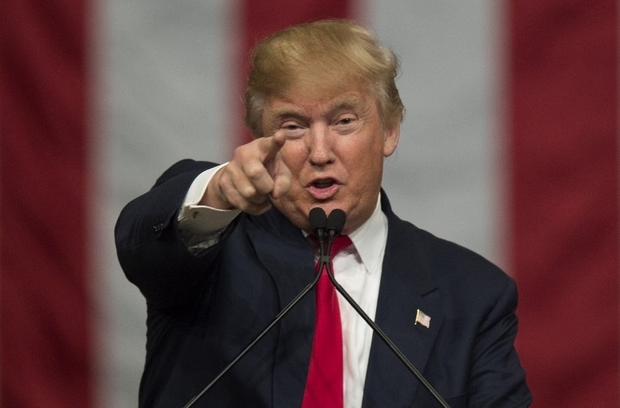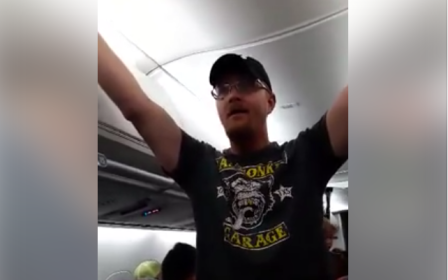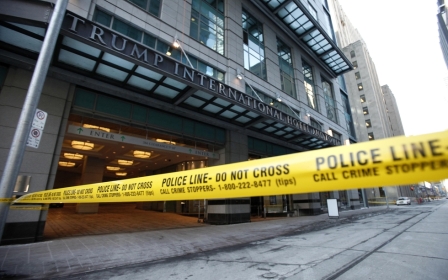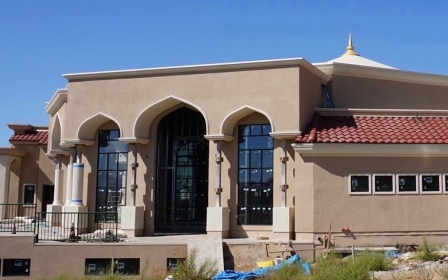Muslim Americans wary of what 2017 will bring with Trump

NEW YORK, United States – Since Donald Trump won this month’s US presidential election, American Muslim groups have scrutinised his cabinet hires and scoured history books for indications of how his anti-immigrant campaign trail talk will translate into policy.
The celebrity realtor won on 8 November after vowing to put "America First" by halting Muslim immigration to the US, hinting at a registry of Muslims and smashing up the Islamic State (IS) and foreign militant groups, among other policies.
He appears to be building an administration that comes good on his tough talk, with such appointees and advisers as Michael Flynn and Jeff Sessions, with their records of anti-Muslim and anti-immigrant policies that have vexed civil libertarians.
Flynn, Trump’s national security adviser, has repeatedly warned of the threat from Islamist militancy, often correctly, and described fear of Islam as “rational”. Sessions, a senator from Alabama, has been nominated as attorney general and argues for tough immigration rules.
Kris Kobach, who is currently Kansas’s secretary of state and a nominee for leading the Department of Homeland Security, is advising Trump on a Muslim registry and vetting arrivals. Trump’s chief political strategist, Stephen Bannon, ran a news website that was famous for denigrating women, Muslims and others.
US-based Muslim groups are anxious about what his team will do once they get the keys to the White House on 20 January. At the very least, they expect tough entry rules on arrivals from the Middle East.
In a worst-case scenario, they describe a mooted database of American Muslims as a potential violation of the US constitution as egregious as the locking up of Japanese Americans during the Second World War.
To get a sense of what 2017 may bring, Middle East Eye spoke with Muslim rights campaigners and those who call for surveillance of some Muslim Americans to stop attacks like those in San Bernardino and Orlando.
Trump’s presidential transition team did not respond to our interview requests.
Welcome to America?
Perhaps the most widely anticipated Trump administration policy is a re-boot of the National Security Entry-Exit Registration System (NSEERS) programme, which was designed by Kobach and others in the wake of al-Qaeda’s 9/11 attacks on the US.
Under NSEERS, people from "higher risk" countries had to undergo interrogations and fingerprinting on entering the US. Some non-citizen, male adult US residents from countries with active militant threats had to register in person at government offices.
The scheme was dropped in 2011 after it was deemed redundant by the Department of Homeland Security and criticised by civil rights campaigners for unfairly singling out arrivals from Muslim-majority nations.
According to Robert McCaw, from the Council on American-Islamic Relations (CAIR), a rights group, NSEERS is the "lowest hanging fruit" for Trump’s team because the apparatus is still on the books and can be easily reactivated.
"It’s really national security theatre," McCaw told MEE.
"NSEERS tracked and registered over 80,000 Muslim immigrants and led to zero terrorist arrests or plots stopped. Instead, it led to a waste of our national security infrastructure’s time, and we only add more hate to the stack in trying to ferret out real terrorists and their plots."
'NSEERS tracked and registered over 80,000 Muslim immigrants and led to zero terrorist arrests or plots stopped'
Such programmes can be diplomatic own-goals for Washington – particularly when it classifies allies such as Indonesia as threats. Analysts mull whether France or Belgium could be deemed similarly worrisome.
Blacklist the Muslim Brotherhood
Walid Phares, a Trump foreign policy wonk, has told the pro-Egyptian government news website, Youm7, that the new administration will designate the Muslim Brotherhood – an Islamist political group with branches in many Middle Eastern countries – as a terrorist organisation.
Such a step would stigmatise its members and make it harder for them to conduct financial transactions. Several Arab governments already outlaw the Brotherhood; US lawmakers have previously considered a terrorist designation for the group.
"Designating the Muslim Brotherhood as a foreign terrorist organisation is necessary for our policy to be consistent. Hamas, its Palestinian wing, is already designated as a foreign terrorist organisation," Ryan Mauro, an analyst at the anti-extremist Clarion Project, told MEE.
Job discrimination, hate crimes and wiretaps
Jamal Abdi, a policy director at the National Iranian American Council (NIAC), a lobby group, predicts that Muslim-American job-hunters will struggle to get their feet in the doors of the US State Department and other arms of a Trump-led government.
"After 9/11 there were a lot of reports of people of Iranian descent facing this kind of discrimination. It was never official, but there was definitely something going on so we’re going to be vigilant and watching out for this," Abdi told MEE.
CAIR has noted a "spike" in anti-Muslim incidents since Trump became president-elect. The group has documented 111 incidents, mostly Muslim women and girls being taunted and having their hijabs removed or pulled, often by people wearing Trump shirts.
"While Trump distances himself from the white nationalists that support him, these hate groups and their followers will continue to feel emboldened if Trump pursues policies that are based on racial and religious profiling and discrimination," added McCaw.
After the 9/11 attacks, US security services stepped up surveillance and eavesdropping activities, targeting mosques, Muslims and their community centres in a manner that was praised by some but criticised for driving a wedge between Americans.
Beefing up the security services is an option for Trump, though it would be controversial. McCaw cautions against the "revival" of such programmes. For Mauro, halting terrorist strikes requires specialists focused on religious militants, white supremacists and other threats.
"If a mosque hosts radical speakers at public events, law enforcement officers can do what every member of the public can do, and attend that event," Mauro said.
"Broadening the spectrum to go beyond prescribed terrorist organisations to collect intelligence on extremists and activists is perfectly appropriate."
Worst-case scenarios
Any reboot of an NSEERS-like scheme worries campaigners because it could lead to calls for comparable vetting of Muslim-American citizens – even though such a move may be unworkable and unconstitutional.
Trump supporters have debated a registry of the estimated 3.3 million American Muslims. The US constitution forbids religious discrimination, while there is no formal test for who is, and is not, a Muslim.
"How do you identify someone who just converted and someone who left the faith? Or someone who identifies as a Muslim but doesn’t practise, or practices a modern, pro-American version? It would just be a mess," said Mauro.
Some recall the internment of Japanese Americans in the Second World War.
'How do you identify someone who just converted and someone who left the faith?' - Ryan Mauro
Beginning in 1942 and ending in 1946, following the Japanese attack on Pearl Harbor, the US government incarcerated as many as 120,000 people of Japanese descent in internment camps throughout the US, mostly US citizens.
A registry of Muslim Americans is closer than we think, said McCaw. US security chiefs already use a “watch list” of some 20,000 Muslim Americans with "affiliations or tendencies towards terrorism". The bar for inscription is already low – Trump could lower it further still, he added.
Middle East Eye propose une couverture et une analyse indépendantes et incomparables du Moyen-Orient, de l’Afrique du Nord et d’autres régions du monde. Pour en savoir plus sur la reprise de ce contenu et les frais qui s’appliquent, veuillez remplir ce formulaire [en anglais]. Pour en savoir plus sur MEE, cliquez ici [en anglais].




